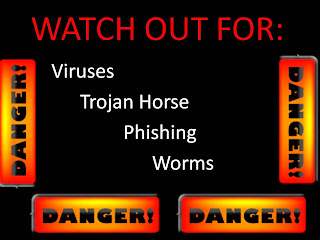It is very important to be a good digital citizen. Every action on the internet leaves a digital trail. If people wanted to find out any information about your past or present endeavors, there are certain tools available that they can pull this use to find this information. We need to be responsible and have ethical behavior when we are using the net. We need to treat others with respect, act in an ethical manner, and take certain precautions when it comes to security. There are several viruses that are just waiting to “eat up” our hard drives. If we are good digital citizens, we will make the right choices when it comes to visiting safe internet sites. Another reason it is important to be a good digital citizen is it gives you the status of credibility. It is important to give credit where credit is due. In other words, do not plagiarize or use copyrighted works without permission or permissible citations.
Having a good digital reputation can impact your life on a large scale. It could make or break your chance of getting a job, as well as make or break your personal reputation. If you own a facebook or blog, be careful what images you put on it and what you write. Teachers must be careful as well. Since we are responsible for educating young minds so that they can have a positive impact on the future, we need to have high standards when it comes to the internet and social media.




































